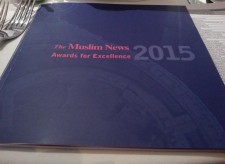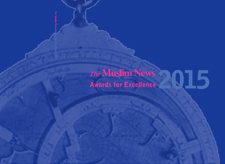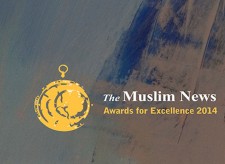(Chart: David Laborde/Intl Food Policy Research Inst)
The war in Ukraine has caused the leaders of many industrialised nations to delay their climate goals. Sanctions on Russia have banned some nations from purchasing Russian oil and gas, leading the UK and Germany to bring coal-fired power plants back online, which they had been phasing out in favour of renewable options and liquified natural gas.
Another crisis triggered by the war is a fertiliser shortage, which is causing widespread food security concerns. Some communities are even encouraging the collection of urine to use as fertiliser since ammonia is a useful component in modern fertilisers. Another option is compost—breaking down food waste to use as fertiliser.
According to the UN Food and Agricultural Organisation (FAO), global food waste emits eight per cent of anthropogenic greenhouse gas emissions each year, the approximate equivalent of the transportation sector. Decomposing food primarily emits methane, a greenhouse gas 20 times more potent than carbon dioxide. Food waste is an overlooked emitter, yet it has significant potential for tackling climate change.
South Korea’s food waste system mandates that residents separate their food waste from normal rubbish and pay for it by weight.
The state then processes the waste for it to be used as fertiliser, livestock feed, and generate energy.
If such a system were operationalised in other industrialised nations, they could significantly reduce their carbon emissions, produce fertiliser domestically, and offer another option for energy generation.
Compost does not have the same results as modern chemical fertilisers. Sri Lanka recently found this out the hard way, when former President Rajapaksa banned fertiliser imports and demanded farmers go organic, causing a major decline in crop yields, leading to food shortages and price spikes, and contributing to social unrest. Yet, compost could be a supplemental option for farmers to help build soil quality while the war in Ukraine continues and beyond.
Land used for livestock feed
One-third of the world’s arable land is used to grow food for livestock. In the 2020/21 season, Ukraine exported 11.3 per cent of the world’s cereals. The war has hampered the country’s ability to export grain, and without more silo space, it will soon spoil. Experts project a 24 per cent decline in maize yields by 2030 due to climate change’s effects on rainfall and temperature.
If nations adopted the Korean model and used food waste to feed livestock, they could divert land away from livestock feed crops and towards those meant for human consumption, potentially staving off famine and saving lives.
The process of implementation
Implementing an extensive food waste disposal system requires political will and interagency cooperation. Waste management is often decentralised, and run by cities, counties, or provinces. First, environmental agencies would need to work with the private sector to understand barriers to implementation. Restaurateurs may have concerns concerning space, health code issues, and whether certain types of foods should be separated.
Then, the food waste processing infrastructure must be built, accounting for the anticipated tonnage and the rate of food breakdown. Governments should work with local universities to conduct research and launch pilot programmes aimed at getting locals comfortable with the program.
They should also contract out to private businesses to ensure the mass production of biodegradable bags, where residents will be expected to keep their food waste before final disposal.
Finally, an extensive public awareness campaign should seek to galvanise support for the scheme by helping residents understand exactly how to separate their food waste.
This will enable them to understand the program’s national benefits, including assisting domestic farmers amid inflation and reducing greenhouse gas emissions to meet Paris Agreement targets.
As long-term reliance on Russian oil and gas is ending, Western leaders are being forced to rethink their nations’ energy infrastructures, military alliances, and trade options.
The Coronavirus pandemic highlighted supply chain vulnerabilities and increased protectionist rhetoric, and now the war is causing food security concerns. Implementing a comprehensive food waste disposal system could help farmers amid the fertiliser shortage and get countries closer to meeting their climate goals. Such a scheme would be less costly than converting energy grids to renewable options and timelier.
Sarah Sakeena Marshall,
American University’s School of Intl Service, The Muslim News Environmental Columnist

















